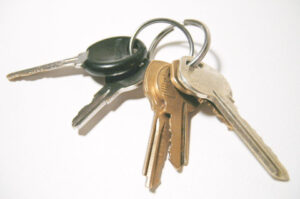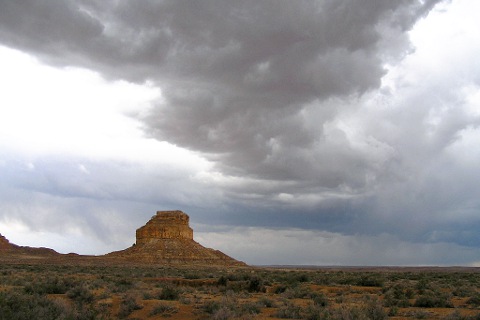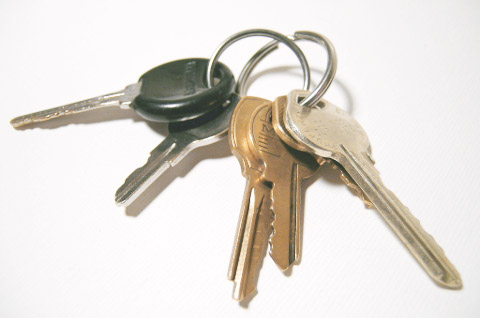As a college student, I decided to move to New Mexico because of the outdoor opportunities I knew I would have here in our incredible national parks. Chaco Canyon is one of the places I am most excited to visit. Over 45,000 people from around the world visit Chaco Canyon each year to hike, stargaze and conduct archaeological research. In fact, the park was designated as an International Dark Sky Park last year, gaining recognition for its great night skies. In 2013 the oil and gas industry proposed to frack within a quarter mile of this historical monument. Fracking operations have been described as looking like “a small city,” with enormous drills and mixing trucks, continuous flaring of gas and air pollution turning these areas into an industrial zone. To bring a small city to such a well-visited and loved national park is an upsetting precedent to set. Aren’t our special places worth preserving? I am calling on the Bureau of Land Management to protect Chaco Canyon from the disruptions and dangers of hydraulic fracking.
Letters: Look, Ma! No Signal! Look, Ma! No Signal!
The amount of car accidents out here is really no “accident” at all. I am shocked to see how many people in the city of Albuquerque—on a daily basis—violate basic traffic laws. I moved to Albuquerque four and a half years ago from New York. Being that New York and New Mexico are two very different subcultures, I feel that they could learn a little from each other. New York could take a breath and slow down a little more like New Mexico, and New Mexico could hold their head a little higher by taking pride in upholding order and regulation in their fair state, like New York. For example, in Albuquerque my partner and I point out on a weekly basis people who: blow through red lights, including cops; blow through four-way stops (does anyone [here] even know the rules for a four-way stop?); failure to signal when turning or changing lanes, failure to yield the right of way (yes, to pedestrians too, which personally has occurred several times, as I am also a street-jogger). In addition, driving while distracted—I was rear-ended … on Montaño Road NW by a young woman who we saw texting in our rearview mirror, but told us after she hit us that she “sneezed”—and undergoing hazardous and outright dangerous driving. (Think: mattresses. Where do they all come from? Where are they all going? Why do New Mexicans always seem to buy new mattresses? And why on earth do they put them on top of ill-fitting cars without being properly tied down?!) We have also been witness to: objects flying out the backs of trucks, trucks without their tailgates up and delivery trucks with their rear door rolled up (all seen on I-40 this summer). Motorcyclists without helmets are illegal in New York State. Out here, where people don’t follow safety rules already, why put yourself in any more danger?! Not to mention the everyday danger of “ordinary” reckless drivers: speeding, music blasting, quickly changing lanes, trying to squeeze between cars without touching them and tailgating, only to be stopped at the same light as you, aka the poor sap who is obeying the speed limit out of the goodness of your heart. And oy! Those tailgaters …I understand that New Mexico has a load of other chronic, culturally based problems it is dealing with (high rates of poverty, high rates of domestic violence, extremely poor levels of child well-being, high rates of unemployment, high dropout rates, etc.). Enforcing traffic laws can be a focused, relatively easy, clear and specific way the great sunny state of New Mexico can start taking more pride in itself and start separating itself from its lawless, “Wild West” past … especially in the city of Albuquerque.How else could we benefit from enforcing traffic laws? Not to mention enforcing DWI and DUI laws, which is a whole issue in itself, and enforcing traffic laws makes people safer. Less of our people get hurt. Less of our family and friends die. Less homemade crosses by the sides of the roads. Less white bicycles. More pedestrian traffic as our roadways get safer. More people learning traffic rules out of necessity. More order. More adherence to our regulations. A decrease in the lawless mentality, at least when behind the wheel. And: Money! Who doesn’t like money? City government can always use more money, especially in our state. This provides a way police can earn money honestly and fairly with citizens by enforcing traffic laws. Yes, this means that they have to start obeying them too. Police can demonstrate to the community that they are doing the job that they were meant to do: keep people safe by reminding them to follow safety rules, at least on the roadways. How? Multiple psychological studies over the decades have shown that if the consequence is delivered immediately following the negative behavior and is severe enough, it will provide adequate negative reinforcement, thus decreasing the likelihood that the negative behavior (poor driving) will occur again. How can our local government and police department develop a new and improved traffic law enforcement program? One suggestion is to model states who have successfully developed and implemented a similar program, like New York, Connecticut, etc. Just ask! New enforcement starts from the top down. If the head administrators in the City of Albuquerque as well as in the Albuquerque Police Department take this issue seriously, and enforcement seriously, then so will their employees. Now, given the level of current distrust in both our government and police department (both locally and nationally), it would be nice to spin off of the idea of “transparency.” The police department/local government should set up a public website to show the community how much money, per month, is brought in by stepping up and enforcing traffic laws, and exactly how that money is then being divided up and funneled into different community-based projects/departments to further improve our community and our state. For example, in May 2014 ticket collection [brought in] $15,429 through the month of May: $5,432 will be given to New Mexico Education Department for Albuquerque/Bernalillo County, $2,581 will be given to the City recycling program, $—to Medicaid/Medicare, etc. Monies can be collected in a lump sum and then divided up by county or city. I will leave that equity part up to the political scientists and economists. Make sense? Now if we can then start charging people more for confirmed acts of child abuse, DWI/DUI, domestic violence and animal abuse within our city/county, that would improve our state’s coffer, as well as our morals and ethics, even more. But I am getting ahead of myself. If we actually start this traffic enforcement/improvement project (and why not?), this means I am also going to have to personally start retraining myself to see only red and yellow … not “pink.” D’oh!
Email letters, including author’s name, mailing address and daytime phone number to letters@alibi.com. Letters can also be mailed to 413 Central Ave NW, Albuquerque, NM or faxed to (505)256-9651. Letters—including comments posted on alibi.com—may be published in any medium and edited for length and clarity; owing to the volume of correspondence, we regrettably can’t respond to every letter. Letters can also be submitted as comments on alibi.com—on the very Weekly Alibi content you’re responding to—using your Facebook, Hotmail, Yahoo or AOL account.






